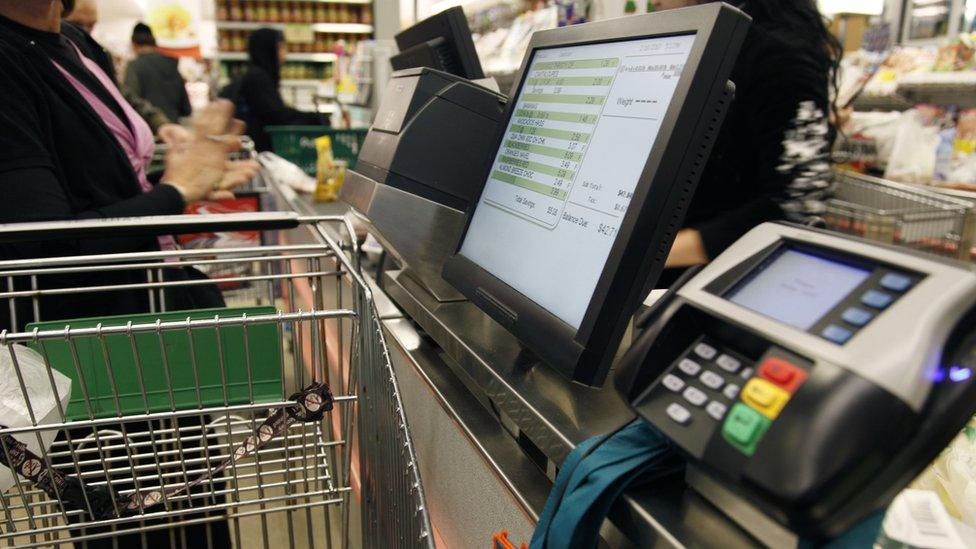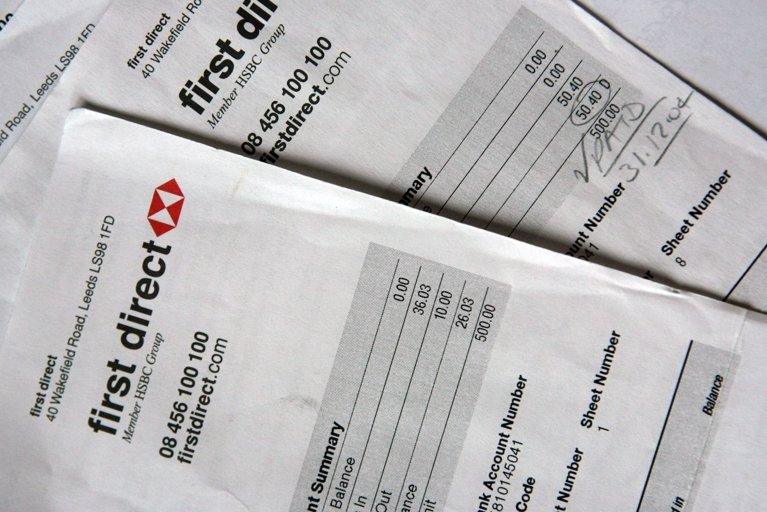'Striking weaknesses' in adult financial skills
- Published
- comments

A quarter of adults struggle to work out how much change they should get in a shop and half cannot read a simple financial line graph, a study suggests.
The study, from Cambridge University and University College London, found "striking weaknesses" in adults' financial skills across 31 countries.
It says financial literacy is essential if consumers are to avoid getting into debt or being misled on money matters.
The report says the findings point to a need for "urgent policy intervention".
The researchers analysed more than 100,000 results from 16- to 65-year-olds from 31 countries (listed below) who had completed the Programme for International Assessment of Adult Competencies test in 2011.
As part of this test, adults were asked four questions that assessed their ability to apply numerical skills to everyday financial tasks.
The researchers' analysis of these results said: "A substantial number of people lack the basic skills that are needed to solve everyday financial tasks."
The study, The financial skills of adults across the world, external, finds of adults across the 31 countries:
About a quarter could not work out how much change they should receive from a shop when buying a handful of goods, and this increased to about a third in Spain, England and Italy
About one in three adults struggled to work out the price they had to pay for a product when they were given a per unit cost, for example per litre or per kilo
About half could not read a simple financial line graph - the type often used to convey key information about the economy and financial products - and this rose to three-quarters in Greece, Chile, Italy and Turkey
Most struggled to calculate discounts involving more complex calculations
While adults in Estonia, Finland and Japan performed well across all four tasks, those in Turkey, Chile, Israel, Italy, Spain and England had among the weakest financial skills.

Examples of the sorts of questions asked
1. If you bought four packs of tea: chamomile ($4.60), green ($4.15), black ($3.35) and lemon ($1.80) with a $20 note, how much change would you get?
2. If a litre of cola costs $3.15, how much will you pay for a third of a litre?
3. If a football club offers the same discount for all season tickets - Main Stand - $50 for single entry, $300 for a season; Stand 2 - $35 for single entry, $210 for a season; Stand 3 - $25 for single entry, $150 for a season - what would the price be for a Stand 4 season ticket, where a single entry costs $21?
The answers are $6.10, $1.05 and $126 respectively.

The report says: "The ability to solve financial problems is critical to the wellbeing of adults across the world since everyday transactions, such as saving, spending and interacting with banks, require significant understanding of key financial concepts.
"Yet, in many countries, there is concern about the lack of financial acumen amongst adults, and whether education systems are equipping individuals with the necessary basic financial skills.
"Our key conclusion is that, in some countries, policy intervention will be needed to ensure adults have the basic skills they need to navigate their way through an increasingly complex financial world."
Study lead author Prof John Jerrim, from the UCL's Institute of Education, says: "We all need to be able to conduct basic financial calculations in order to make rational well informed decisions.
"This includes how much we should save into our pensions, understanding the financial implications of borrowing money from payday loan sites, through to whether we can really afford to buy a particular house."
The countries covered by the research paper are:
Turkey
Korea
Cyprus
Ireland
United States
France
Czech Republic
Finland
Slovakia
Chile
Estonia
New Zealand
Singapore
Slovenia
Belgium
Norway
Israel
Canada
England and Northern Ireland (counted as one for the report)
Poland
Germany
Italy
Lithuania
Austria
Greece
Russia
Netherlands
Denmark
Japan
Spain
Sweden
- Published2 August 2013
